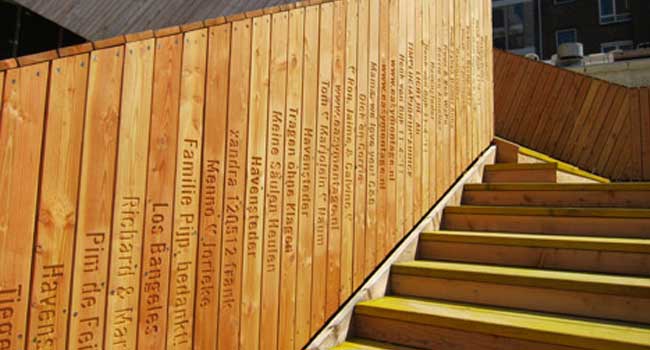
In a world where local councils face severe revenue raising restraints, whether through rate capping, legislation or political unpalatability, local government in the US and Europe is increasingly turning to crowdfunding to achieve social goals, while also giving communities a direct say in decision making.
While the method of funding is innovative, boosting the social capital of individuals or communities has long been an area councils are well versed in, with many of the services they provide being designed around health, welfare or culture and functioning alongside councils’ community grant programs.
Crowdfunding works by inviting people to donate money online to help fund an idea or project on platforms such as Pozible (Australia), Kickstarter (global) or Indiegogo. Posts outline a project idea, describe its benefits and outline how it will work while setting a funding target within a certain deadline. It’s free to post a project online and pledges are only cashed in if the target is reached.
While crowdfunding websites first sprang up to help cash-strapped artists fund their work they developed to include a bewildering array of commercial and personal fundraising ideas. Many projects featured now also have a strong community bent and take a broader perspective, which some local councils, particularly in the UK and the US, are embracing.
A lovely, romantic council urban crowdfunding success story can be found on the streets of Rotterdam, Holland, where locals paid $32 each to inscribe names, messages of love and anniversary dates on one of 17,000 wooden planks that make up the Luchtsingel, a new 390-metre pedestrian bridge spanning a busy main road. The bridge was part of a bigger project to transform the area’s neglected open spaces and vacant high rises and it links up three previously disconnected parts of the city.
Uk website Spacehive is dedicated to crowdfunding civic projects, one of the newer breed of crowdfunding platforms.
A Bristol artist successfully raised $11,000 this year to create a giant water slide for a day in the centre of the city, which is in England’s south-west. Other funded ideas on Spacehive have included community festivals, playground renovations and community gardens, all traditionally competitors for council community grants.
Bristol City Council has become a major exponent of crowdfunding and it has partnered with Spacehive to raise grants for social enterprises and local charities as part of the council’s independently managed Mayor’s Fund. Projects are often themed, with past themes including homelessness, disability and mental health.
Councils often chip in to help some of these initiatives go ahead. For example, a proposal to create a vintage teashop, Truly Splendid Tearoom, in the heart of rundown Catford in South-East London is supported in part by the Mayor of London’s High Street Fund.
Some ideas become partnerships between local authorities and other organisations. The Kingston Memorial Gardens in Surrey harnesses the power of horticultural students from Kingston University, Kingston Upon Thames Council, local business and locals to revitalise drab looking public gardens.
Meanwhile, Mansfield District Council in Nottinghamshire raised $72,000 from 25 donors to pay for free Wi-Fi in the town centre, including promoting an app which provides information about the town’s history, events and businesses.
Some of the most successful crowdfunded public projects are in the US, one of the most popular being a bike share in Kansas City. The idea raised $420,000 using Neighborly, another civic crowdfunding site, with the money raised providing 90 bikes across 12 bike stations in the city.
New York City Council has an official Kickstarter crowdfunding page which functions as a hub to help inject funds into the city’s low income neighbourhoods.
So far, the page has inspired community projects – many of them in the wake of Hurricane Sandy – including rebuilding a Mexican restaurant flattened by the hurricane and a pay-as-you-can community kitchen in Rockaway, an area hit hard by the hurricane. Other projects include a documentary on female immigrant domestic workers and reggae events at Coney Island.
It doesn’t just have to be about money. For councils, the crowdfunding platform could be adapted so that people and businesses can also contribute their time and expertise to get an idea over the line. Councils could also donate in kind, with premises and technical know-how.
But before Australian local government rushes into the crowdfunding arena, it is worth pointing out that it does throw up some issues and complications, partly because of its freewheeling nature.
The beauty of crowdfunding projects is that they are often cheerfully amateur and grassroots but this brings into play serious considerations, such as what happens if a project goes over-budget or is never completed: who funds the shortfall or returns the money to backers?
Unlike local government-led projects, there is a glaring lack of accountability when it comes to managing a project’s scale and scope, ensuring that it is delivered to a particular standard and on time and establishing a chain of responsibility.
One of the other attractive aspects of much crowdfunding is that it is highly localised. This can mean a small pool of people and businesses to tap for cash and this fact will necessarily limit a project’s scale. There could also be an argument that crowdfunding favours rich over poor neighbourhoods since people living in richer areas have more spare cash.
As well, big ticket items like transport infrastructure and education projects are likely to be too expensive for locally-backed projects and some ratepayers may object to being asked to contribute when they already pay taxes and rates.
Also, on the flip side, what happens if momentum builds among citizens and a project is fully funded and ready to go but it has not been approved by government?
Whatever concerns it can create for councils, crowdfunding remains a potentially exciting tool that can help drive innovation and democracy while leveraging money from sources such as corporates and charities and harnessing it for social good.
Comment below to have your say on this story.
If you have a news story or tip-off, get in touch at editorial@governmentnews.com.au.
Sign up to the Government News newsletter

